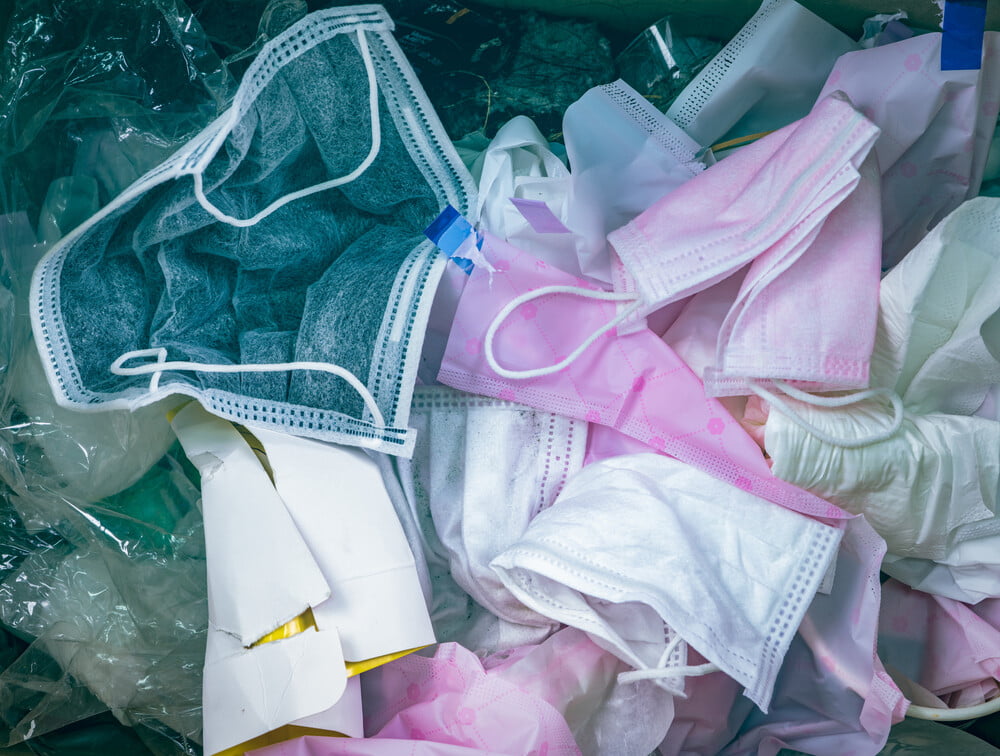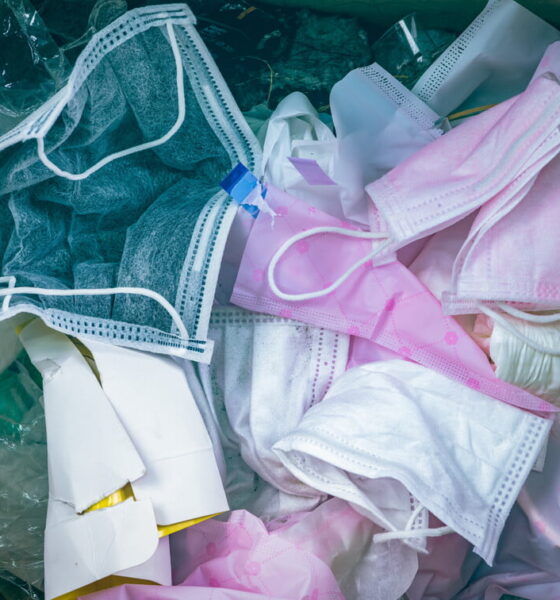

Go Green
Infographic: Fighting The Environmental Impact Of Face Masks
We’ve all seen it at this point. You’re walking out of the grocery store to put your groceries in your trunk and by your feet there’s a mask and a pair of gloves from someone who parked there before you and decided the parking lot was an adequate place to deposit their used personal protective equipment. You push your cart to the cart return and see masks and gloves dangling from the returned carts and even on the ground by the trash can that was placed there to fight the scourge. And now there are memes asserting that we humans are the virus with photos of such litter. And that’s far from the only problem with disposable PPE.
Disposable PPE Is Clogging Waterways And Landfills
By one estimate, some 128,000 metric tonnes of plastic waste from PPE is expected to end up in landfills by next year in the United Kingdom alone.There are already masks and gloves washing up on beaches around the world. Unfortunately, disposable PPE is not recyclable because it is made often of a mix of materials and can’t be separated into raw materials to be reused.
Wildlife is getting entangled in ear loops from disposable masks, and when the rain washes away that PPE you’ve stepped over in parking lots it ends up in waterways, eventually adding to the problem of microplastics in the oceans.
Disposable masks in particular create ten times the climate change impact of reusable ones, so why are folks relying on disposables when they could be washing and rewearing?
Reusable Masks Are An Investment
It just doesn’t make sense to spend a bunch of money on masks you wear once and toss, especially since we are likely going to be wearing masks well into the spring.
Sewing reusable masks from cotton or woven fabric has become part of our COVID-19 routines, but there are even more environmentally-friendly options coming out all the time. Cotton is a major resource-hog environmentally speaking, and while many folks are making masks from reclaimed materials there are still better options when it comes to environmental impact and efficacy.
Reusable masks made with cork are washable, but cork offers some additional advantages. Cork is naturally antimicrobial, so it offers an additional bit of protection for the wearer that cloth masks don’t. From an environmental standpoint, cork trees absorb five times more carbon dioxide after the cork bark is harvested, and cork trees add to biodiversity, both of which are crucial for the environment. Cork can also be recycled into new material when it is no longer needed.
Cork is biodegradable, nontoxic, hypoallergenic, vegan, PETA-approved, and more.
Learn more about the problem of mask pollution and how to fight back from the infographic below.






















